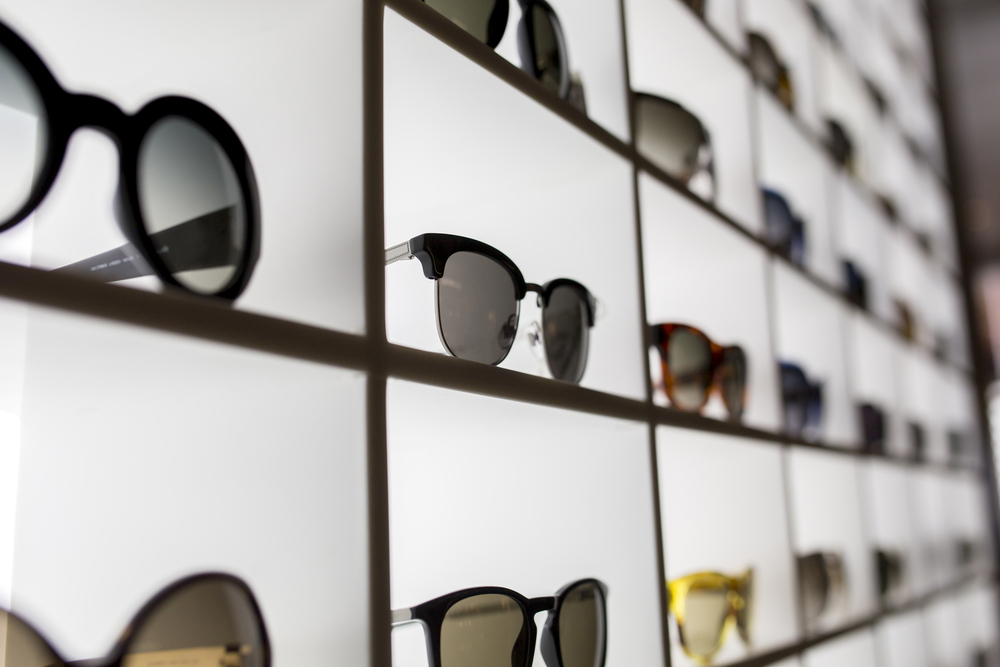
When it comes to choosing the right sunglasses, it's not just about style. There's a much more critical factor to consider - Ultraviolet (UV) protection. UV rays emitted by the sun can harm the eyes, leading to conditions such as cataracts, macular degeneration, and even skin cancer around the eyelids. These rays are invisible, so you won't even notice the damage they're doing until it's too late. That's where sunglasses come into the picture.
Sunglasses are a significant line of defense against these harmful UV rays. By wearing sunglasses, you're not just shielding your eyes from the bright sun; you're also protecting them from the invisible threat of UV damage. However, not all sunglasses offer the same level of protection.
The Importance of Maximum UV Protection in Sunglasses
When it comes to choosing the right sunglasses, maximum UV protection should be your priority. UV rays are present even on cloudy days, and they can reflect off surfaces like water, snow, and glass. This means that even when you're in the shade or it's not particularly bright outside, your eyes are still at risk.
Prolonged exposure to UV rays can lead to various eye issues, including cataracts and macular degeneration. Cataracts can cause blurred vision and require surgery to treat, while macular degeneration can lead to irreversible vision loss. Skin cancer around the eyelids is also a risk.
That's why it's crucial to opt for sunglasses that provide maximum UV protection. Look for sunglasses that block 100% of both UVA and UVB rays. This will often be labelled as "UV400," which indicates that the glasses block UV rays with wavelengths up to 400 nanometers, covering all of UVA and UVB rays.
Understanding UV Protection Levels in Sunglasses
UV protection levels in sunglasses can vary significantly. While some sunglasses offer 100% UV protection, others may not provide adequate protection. To ensure your eyes are properly shielded from the sun's harmful rays, it's crucial to understand these levels of protection.
Typically, sunglasses offer protection against two types of UV rays - UVA and UVB. UVA rays make up the majority of UV radiation reaching the Earth's surface and can penetrate deep into the eyes, causing damage to the macula. UVB rays are less prevalent but can be more harmful, causing damage to the cornea and lens.
The best sunglasses for UV protection will block 100% of both UVA and UVB rays. This is often indicated on the glasses as "UV400 protection," meaning the glasses block UV rays up to 400 nanometers. It's crucial to look for this rating when choosing sunglasses, as anything less may not provide adequate protection.
Tips for Choosing the Right Sunglasses for Maximum UV Protection
Choosing the right sunglasses for maximum UV protection involves more than just picking up the most expensive pair on the shelf. Here are some tips to help you make the right choice.
Firstly, always look for the "UV400" or "100% UV protection" label. This indicates the sunglasses will block 100% of UVA and UVB rays. Don't be fooled by dark lenses; they don't necessarily provide better UV protection.
Secondly, consider the size and fit of the sunglasses. Larger frames and wraparound styles can provide more protection by blocking UV rays from entering around the edges of the glasses. The sunglasses should also fit well, not slipping down your nose or resting on your cheeks.
Finally, although lens color does not affect UV protection, different lens colors can offer varying levels of comfort and clarity. Experiment with various lens colors to see what works best for you in different lighting conditions.
Factors to Consider When Buying Sunglasses for UV Protection
Apart from the level of UV protection, several other factors should be considered when buying sunglasses. One of these is the lens material. Polycarbonate and NXT polyurethane lenses are impact-resistant and provide excellent UV protection. On the other hand, glass lenses offer the best clarity but can shatter upon impact.
The frame material is also important. Nylon frames are durable and resistant to temperature changes, while metal frames are more susceptible to damage from UV and salt water.
Lastly, consider the cost. While expensive sunglasses often offer high-quality lenses and stylish frames, they don't always provide better UV protection. It's possible to find affordable sunglasses that offer 100% UV protection. The most important thing is to ensure they block 100% of UVA and UVB rays.
Choosing the Right Sunglasses for Your Eye Protection
Choosing the right sunglasses for maximum UV protection is more than just a matter of fashion. It's a critical decision for your eye health. By understanding UV protection levels and considering factors such as lens and frame material, size, fit, and cost, you can find sunglasses that will protect your eyes and keep you looking stylish.
For more on how to choose the right sunglasses for maximum UV protection, visit Eyecare Association Optometric Group. Our optical boutique has a great selection for you to choose from. Call us today at 626-804-3266 to schedule an appointment. You can also visit our office in Azusa, California, for an in-person consultation.






